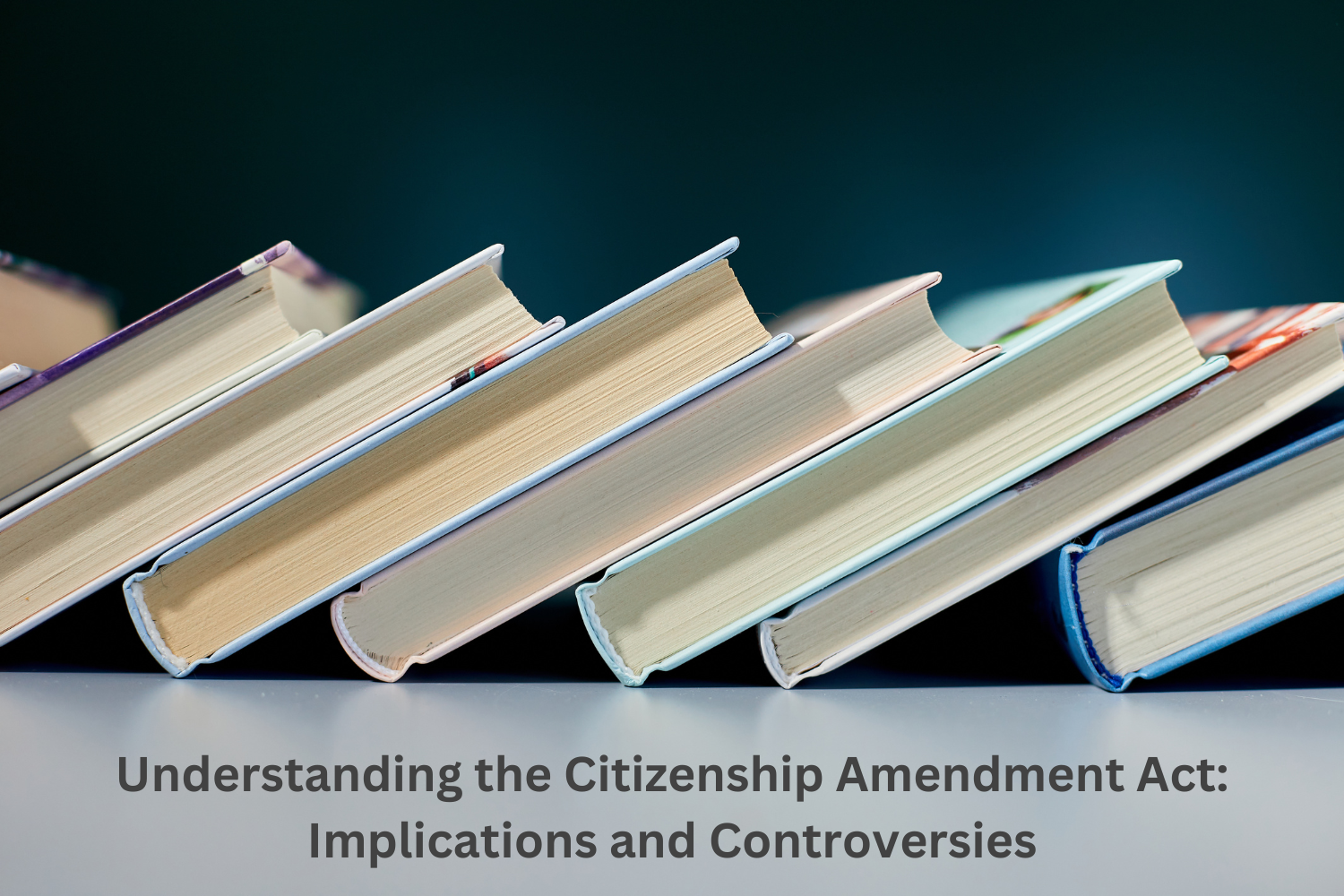The Citizenship Amendment Act (CAA) of 2019, enacted by the Indian government, has been a subject of significant debate and controversy since its pass
The Citizenship Amendment Act (CAA) of 2019, enacted by the Indian government, has been a subject of significant debate and controversy since its passage. This legislation is designed to expedite the process of granting citizenship to certain non-Muslim minority communities from neighboring countries. As with any major legislative change, it has sparked widespread discussions about its implications on citizenship, secularism, and national identity.
What is the Citizenship Amendment Act?
The Citizenship Amendment Act amends the Indian Citizenship Act of 1955. It provides a pathway to Indian citizenship for individuals from Hindu, Sikh, Buddhist, Jain, Parsi, and Christian communities who entered India on or before December 31, 2014, and who have faced religious persecution or fear of persecution in their home countries—specifically, Afghanistan, Bangladesh, and Pakistan. This law effectively fast-tracks the naturalization process for these groups, excluding Muslims from this special provision.
Key Provisions of the CAA
- Eligibility Criteria: The CAA applies to migrants from the aforementioned communities who entered India on or before December 31, 2014, and who have resided in the country for at least five years.
- Exclusion of Muslims: The Act explicitly excludes Muslims from its benefits, which has been one of the primary sources of contention and debate.
- Fast-Tracking Citizenship: Eligible individuals can apply for Indian citizenship after residing in India for five years, compared to the standard requirement of eleven years for other migrants.
Controversies and Criticisms
- Religious Discrimination: Critics argue that the CAA undermines the secular nature of India by providing preferential treatment based on religion. The exclusion of Muslims from the Act’s provisions has been particularly controversial, with opponents arguing that it discriminates against Muslim refugees and violates the principle of equality before the law.
- Link with NRC: The National Register of Citizens (NRC) is a separate but related issue. The NRC aims to document all legal citizens of India. Critics fear that when combined with the CAA, it could lead to the exclusion of many people, particularly Muslims, who may find it difficult to prove their citizenship status.
- Protests and Unrest: The CAA has triggered widespread protests across India, with thousands of people taking to the streets to voice their opposition. The demonstrations have occasionally turned violent, leading to clashes with law enforcement and raising concerns about the impact on public safety and democratic freedoms.
- International Reactions: The CAA has drawn criticism from various international bodies and human rights organizations. Some argue that it could set a dangerous precedent for how countries address refugee and asylum-seeker issues.
Government’s Stance and Justifications
The Indian government defends the CAA as a humanitarian measure aimed at helping persecuted minorities from neighboring countries. It argues that the Act does not discriminate against any religion but focuses on providing relief to communities that have faced significant persecution. The government also asserts that the CAA and NRC are separate processes and should not be conflated.
Looking Ahead
As India continues to grapple with the implications of the CAA, it remains a pivotal issue in national politics and social discourse. The Act has sparked important debates about secularism, human rights, and the role of citizenship in a diverse democracy. Moving forward, it will be crucial to balance the need for effective and humane immigration policies with the principles of equality and non-discrimination.
Conclusion
The Citizenship Amendment Act is a landmark piece of legislation with far-reaching implications. Its impact on India’s secular identity, the treatment of minorities, and the broader socio-political landscape will likely continue to be a significant topic of discussion. Understanding the nuances of the CAA and its associated controversies is essential for anyone interested in the future of Indian democracy and human rights.


COMMENTS